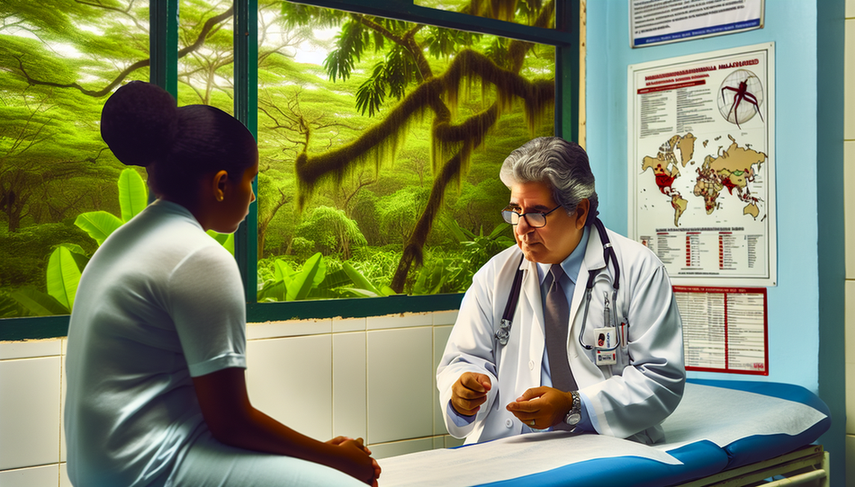Imported Infections: Managing Malaria and Dengue in Clinical Practice for Travel Consultation and Epidemiological Surveillance

The increase in international travel has led to a rise in the incidence of imported infections, such as malaria and dengue, which present significant challenges in clinical practice. These vector-borne diseases are common in tropical and subtropical regions, and their proper management is crucial to prevent severe complications and the spread in non-endemic areas.
Diving Deeper into Clinical Management
Malaria, caused by parasites of the genus Plasmodium, remains one of the most common infections among travelers returning from sub-Saharan Africa. Early diagnosis and appropriate treatment are essential to avoid severe complications. According to a study conducted at the Hospital for Tropical Diseases in London, malaria caused by Plasmodium falciparum was the most common diagnosis among travelers requiring hospitalization [1].
On the other hand, dengue, a viral disease transmitted by mosquitoes of the genus Aedes, is prevalent among travelers visiting Southeast Asia and Latin America. Epidemiological surveillance is fundamental to identify outbreaks and prevent local transmission. An analysis of surveillance data in Europe highlighted an increase in dengue infections, underscoring the importance of travel consultation for prevention [2].
The clinical management of these infections requires a multidisciplinary approach that includes accurate diagnosis, timely treatment, and patient education on preventive measures. Travel consultation is a valuable tool to reduce the risk of imported infections, providing information on malaria prophylaxis and protective measures against mosquito bites [3].
Conclusions
The management of malaria and dengue in clinical practice requires a deep understanding of the epidemiological and clinical characteristics of these imported infections. The implementation of epidemiological surveillance strategies and the promotion of travel consultation are essential to improve clinical outcomes and prevent the spread of these diseases. Healthcare professionals must be prepared to face these challenges through continuous updates of their knowledge and clinical skills [4].
Referencias
- [1] Geographical and temporal trends in imported infections from the tropics requiring inpatient care at the Hospital for Tropical Diseases, London - a 15 year study.
- [2] Travel-associated infection presenting in Europe (2008-12): an analysis of EuroTravNet longitudinal, surveillance data, and evaluation of the effect of the pre-travel consultation.
- [3] Travel-acquired infections in Canada: CanTravNet 2011-2012.
- [4] Emerging and imported diseases diagnosed in the emergency department of a hospital in Madrid.
Created 13/1/2025
